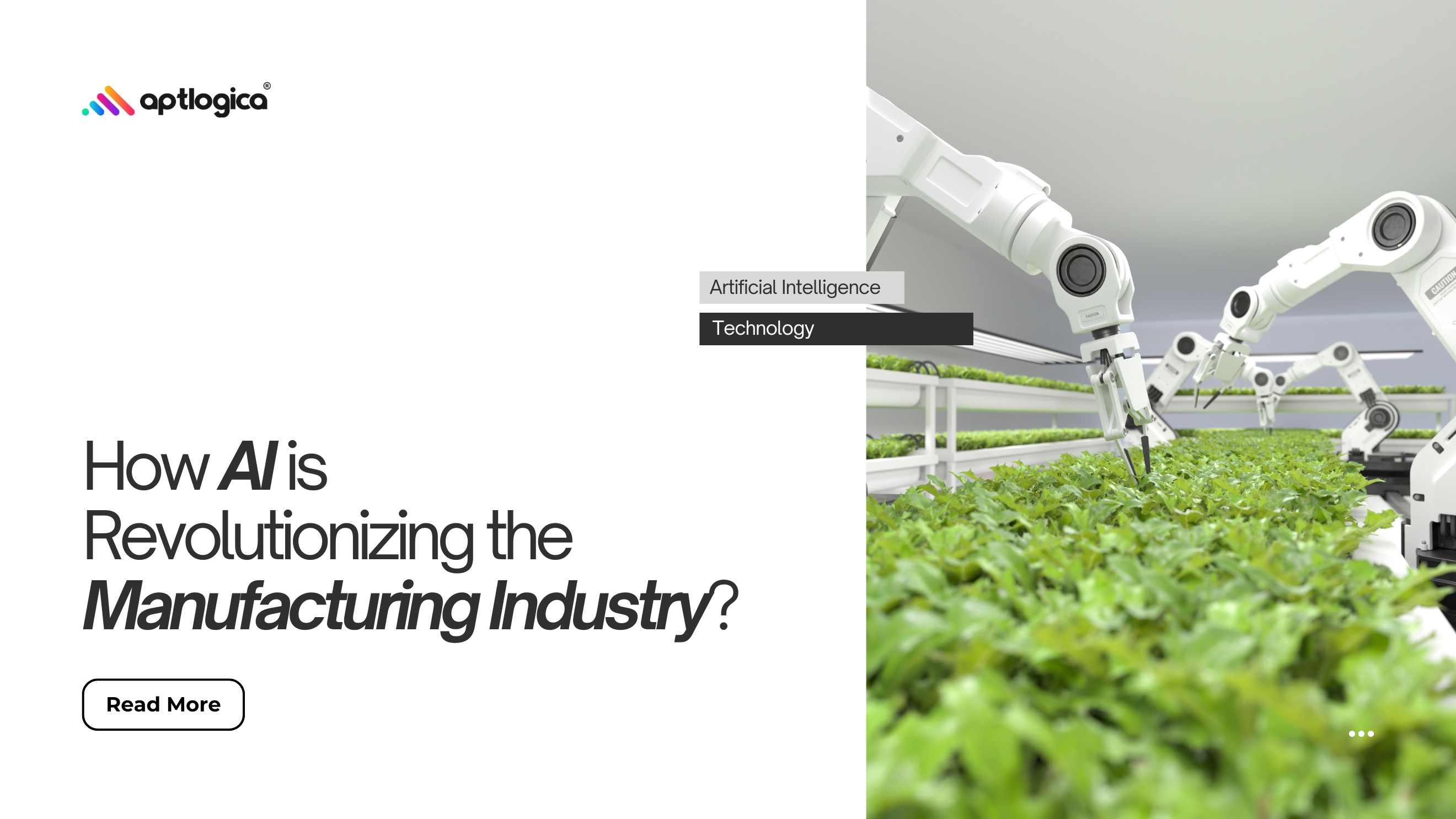Artificial Intelligence (AI) is no longer a futuristic concept; it’s a present-day catalyst transforming the manufacturing landscape. From predictive maintenance to intelligent automation, AI is enhancing efficiency, reducing costs, and fostering innovation across the sector.
Industry Growth and Adoption
The manufacturing AI market is expected to grow at a compound annual growth rate (CAGR) of 44.2% from $5.94 billion in 2024 to $8.57 billion by 2025. This expansion shows how AI is becoming more and more significant in the manufacturing sector.
By 2035, AI is predicted to increase productivity by 40%, revolutionizing commercial operations. Its primary uses include improving quality control, identifying product flaws, and automating crucial jobs, all of which result in more intelligent and effective procedures.
Manufacturers have a distinct competitive advantage by implementing AI since it increases productivity and performance. This article explores how artificial intelligence is changing the manufacturing industry.
The Role of AI in the Manufacturing Industry
AI in manufacturing is not just about automation—it’s about transformation. It plays a pivotal role across the value chain:
- Enhanced Operational Efficiency: AI enables manufacturers to automate repetitive tasks, reduce waste, and streamline production, directly improving ROI.
- Data-Driven Decision Making: With machine learning algorithms, factories can make real-time adjustments based on sensor and machine data, resulting in smarter workflows.
- Human-AI Collaboration: AI augments human capabilities, not replaces them. Workers are now trained to collaborate with intelligent machines and focus on value-adding tasks.
- Agile Manufacturing: AI brings flexibility to production lines, allowing quick adaptation to changing customer demands or supply disruptions.
- Competitive Advantage: By implementing AI, manufacturers gain an edge in product innovation, delivery speed, and cost-efficiency.
Key Applications of AI in Manufacturing
- Predictive Maintenance:
AI algorithms analyse equipment data to predict failures before they occur, reducing downtime and maintenance costs. Notably, 90% of top machine manufacturers are investing in predictive analytics technology for maintenance
- Quality Control:
Computer vision systems powered by AI detect defects and inconsistencies in products with greater accuracy than human inspectors, ensuring higher quality standards.
- Supply Chain Optimization:
AI enhances supply chain efficiency by forecasting demand, optimizing inventory levels, and identifying potential disruptions, leading to more responsive and resilient operations.
- Product Design and Development:
AI accelerates product development cycles by analysing design data and simulating performance, enabling faster innovation and time-to-market. - Energy Management:
AI systems monitor and optimize energy consumption across manufacturing processes, contributing to sustainability goals and cost savings.
Industry Use Cases:
- BMW – Quality Control
BMW employs AI-powered image recognition to inspect car parts for defects, resulting in a 40% reduction in manufacturing defects and improved product reliability.
- Siemens – Supply Chain Optimization
Siemens leverages AI for demand forecasting and inventory management, achieving a 25% reduction in supply chain costs and enhanced inventory accuracy.
- Foxconn – Robotic Process Automation
Foxconn utilizes AI-driven robots for assembly tasks, increasing production efficiency by 50% and minimizing human errors on the assembly line.
- Toyota – Energy Management
Toyota integrates AI to monitor and optimize energy consumption across its manufacturing plants, leading to a 20% reduction in energy costs and supporting sustainability initiatives.
- General Electric (GE) – Process Optimization
GE applies AI to analyse manufacturing data, identifying bottlenecks and inefficiencies, which boosts operational efficiency by 30%.
Partner with Aptlogica for AI-Driven Manufacturing Success
At Aptlogica, we deliver smart AI solutions that boost efficiency, quality, and cost savings in manufacturing. From predictive maintenance to supply chain optimization, our advanced technologies help you stay competitive and grow sustainably.
Reach out to us at sales@aptlogica.com to discover how we can transform your operations with AI-powered innovation.





